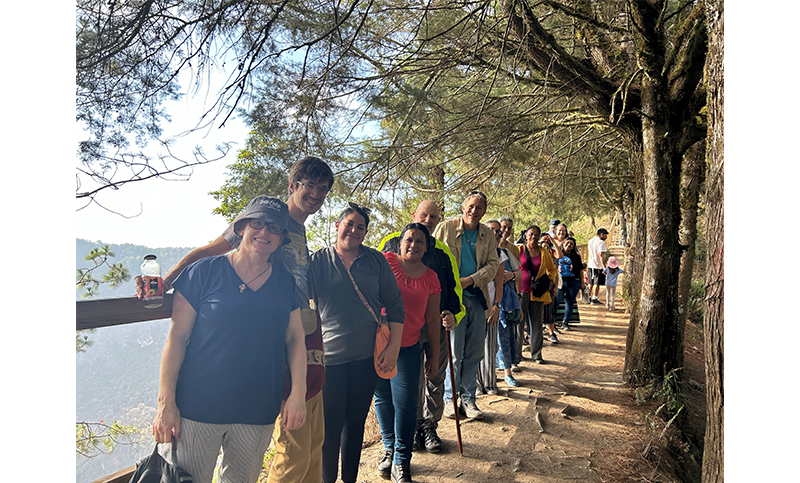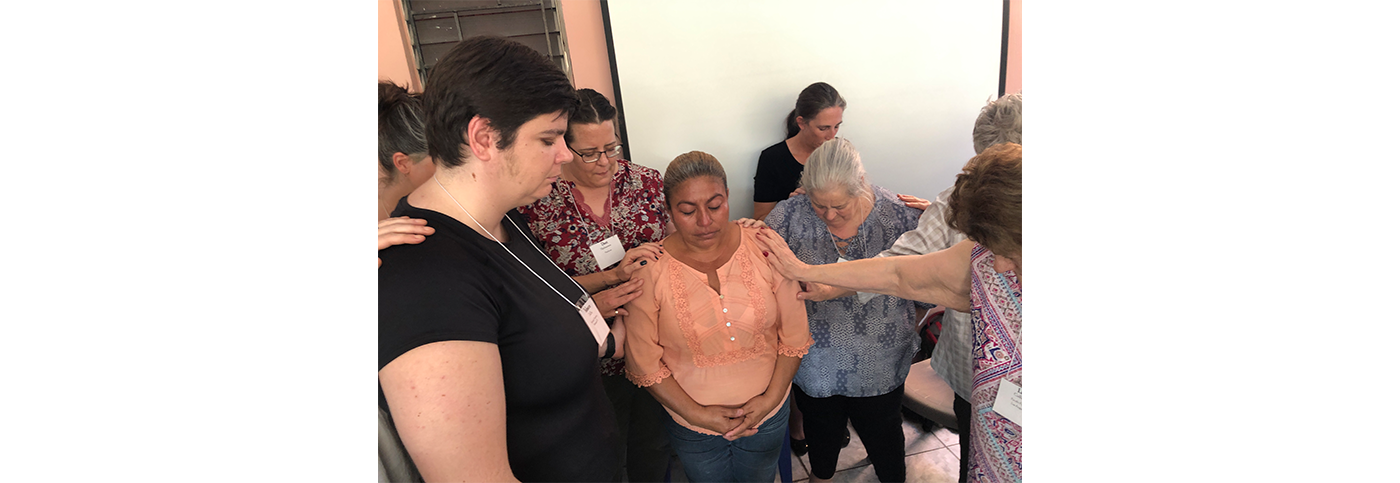Peace & Global Witness
Ministering on the margins in Madagascar
Gifts to the Peace & Global Witness Offering help stop human trafficking and the exploitation of children
LOUISVILLE – As a mere child herself, Rose had already married, given birth to — and lost — a child by the time she was 15 years old.
Upon discovering that she was pregnant just four months after her traditional Malagasy wedding, Rose’s joy at the birth of her son quickly turned to sorrow.
“My baby was dead after 10 days,” she said.
One agonizing month later, Rose’s in-laws demanded that she move out of their home and file for separation from their son. Because — according to their belief system and the prevailing customs in their native Madagascar — if a baby dies before it is 1 month old, it doesn’t have a good mother.
“Even the chicken can take care of their kids beyond one month,” Rose recalled. “That means I am not even as bright as a chicken.”
Overwhelmed and despondent at having lost everything, Rose turned to the bright lights of Madagascar’s nightclub and discotheque scene.
“I do not like this life,” she said. “I am like a prostitute; but I needed to run away from my sadness.”
It was there that the Rev. Helivao Poget found her.
A teacher of missiology at Madagascar’s Faculty of Theology Ambatonakanga, Poget also serves as director of ministry to marginalized people (SAFFIFAA) at the Church of Jesus Christ in Madagascar (FJKM), one of Presbyterian World Mission’s global partners.
Poget’s call to end human trafficking in Madagascar and the exploitation of children everywhere is made possible, in part, by gifts to the Peace & Global Witness Offering, traditionally received on World Communion Sunday, which this year falls on Oct. 1.
The Peace & Global Witness Offering is unique in that half of it is directed to peacemaking and global witness efforts at the national church level to address critical issues around the world. Twenty-five percent is retained by congregations for local peace and reconciliation work, and 25% goes to mid councils for similar ministries on the regional level.
In her work ministering to people living on the margins in Madagascar, Poget often asks children, “What can you buy at the market?” She then tells them, “Children are not for sale!”
One such child, Rose, first met Poget in 2009 at the age of 17.
“Rose sat down on the beach, looking at the nice blue ocean, at a place called La Pointe, where people take canoes across the channel between Îles aux Nattes, the island where she is from, and Sainte Marié town,” recalled Poget. “When my colleague and I started sharing with her, Rose said that she would like to go somewhere — anywhere — far from Îles aux Nattes. When I asked her why she wanted to leave such a beautiful island, where tourists spend a lot of money to enjoy the beach and nature, Rose just smiled when she told us that they like to enjoy the women, too.”
After Poget and her colleague listened to Rose’s story and prayed with her, she agreed to follow them to their place, where she was ultimately able to turn her life around.
Today Rose is helping to lead others out of the scourge of human trafficking.
“She became our first colleague to rescue teenagers from the discotheque lifestyle,” Poget said.
Poget is not alone in her efforts to prevent children from being exploited. Among the many partners and volunteers whom she relies upon to join her in combating human trafficking are school officials, church, youth and community leaders, and child protection officers.
“PC(USA) mission co-workers also work with us by visiting our activities, sharing ideas and providing materials and support,” she added. “PC(USA) regional liaisons come to see our work in the field, regularly helping us to write our projects and advising us in many other ways as well.”
And the relationship — and mutual benefit — is reciprocal.
In 2013 and 2022, Poget itinerated in the U.S. as an international peacemaker, a program sponsored and coordinated by the Presbyterian Peacemaking Program. When speaking to mid councils and congregations, she would often emphasize the similarities in the human trafficking problem between the U.S. and Madagascar.
“Helivao is a pastor who has focused her ministry on street chaplaincy and being with those at the margins of Malagasy society, reminding us of our call to be a Matthew 25 Church,” said the Rev. Carl Horton, coordinator of the Presbyterian Peacemaking Program. “Her Christ-like sensibility is inspirational and motivational. Whenever people hear her stories, they are challenged to see their communities through a lens of possibility. So often we think these problems are too big for us or for the church, but Helivao shows us an embodied compassion and concern, that we are in this together and that we absolutely can do all things through Christ, who strengthens us.”
Earlier this year, Poget participated in a travel study seminar co-sponsored by the Presbyterian Peacemaking Program and Presbyterian World Mission where participants learned about the root causes and current challenges of forced migration and labor trafficking.
“During the travel study seminar, Pastor Helivao saw migrants sitting on cardboard and she wanted to be with them, just as God is with us through life’s many trials,” said Horton. “Pastor Helivao embodies going to where people are, which is what accompaniment is all about. How do we accompany our siblings to show that the Church walks with them? The Peace & Global Witness Offering makes it possible for us to ‘be with’ one another.”
For both Poget and Horton, that’s the key.
“Through the Peace & Global Witness Offering, we can touch lives far beyond our individual reach,” Horton said. “It reminds us that we are not alone. We are in this ministry of peace and global witness together.”
read more stories:
participate with us
When we all do a little,
it adds up to a lot.
The Peace & Global Witness Offering draws Presbyterians together and provides exposure to active peacemakers as well as education and resources to empower congregations and individuals to become peacemakers, themselves. These collective efforts support resources in dealing with conflict, provide nurturing reconciliation, and stand in support of our global siblings, because the peace of Christ belongs to people everywhere.







